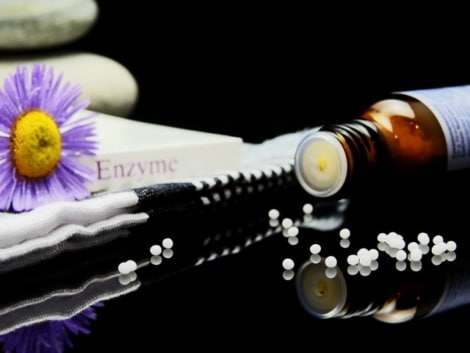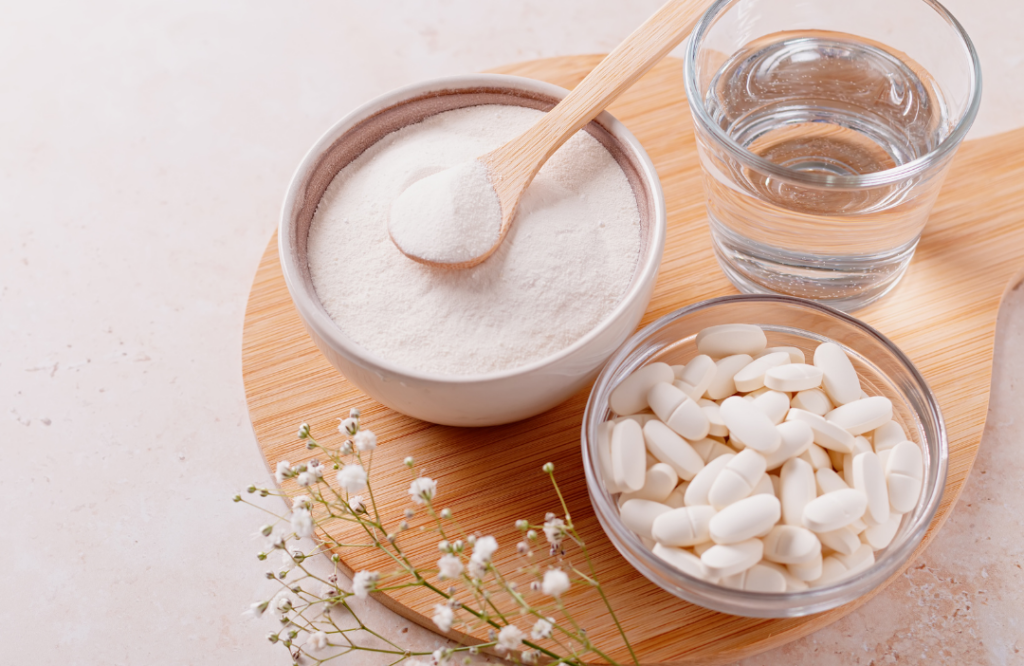SIBO Treatment: 5 Tips for Beating SIBO
Published on November 18, 2017 by Dr. Caitlin Gordon
If you’re going through small intestinal bacterial overgrowth (SIBO) treatment for the first time or the fourth time, you are probably feeling frustrated and worried it may come back or not go away completely. I have dealt with SIBO a number of times and treated many patients with this condition. I know how tough it can be! Focusing on root cause issues and working to heal the nervous system connection between the brain and gut is essential.
Here are some of the best ways to support your SIBO treatment and avoid SIBO relapses.
1. Know if you are methane or hydrogen dominant and plan SIBO treatment accordingly
Knowing if your SIBO (small intestine bacterial overgrowth) is methane or hydrogen-dominant will help choose the products that will be most effective during treatment. For example, methane-dominant SIBO tends to be a little more difficult to treat. It often responds well to allicin products like Allimax Pro and concentrated plant oil products like Ayush Herbs’ Neem Oil. In contrast, hydrogen-dominant SIBO can often be treated solely with berberines or oil of oregano.
Also, not every GI doctor is familiar or educated in treating SIBO. Taking the wrong prescription antibiotic can cause more issues. There is only one prescription antibiotic, called Xifaxin, that has been shown to work well for SIBO. If you can’t get this particular product, the herbal antibiotic protocols have been researched and shown to be equally effective to Xifaxin. For individualized treatment plans, please schedule an appointment.
2. Wait 4 hours between eating
 Supporting the migrating motor complex (MMC) is essential to effectively treat SIBO. Often, damage to the enteric nerves from food poisoning, traveler’s diarrhea, or stomach bugs causes MMC dysfunction. This is a root cause of SIBO and SIBO will recur if the MMC is not addressed.
Supporting the migrating motor complex (MMC) is essential to effectively treat SIBO. Often, damage to the enteric nerves from food poisoning, traveler’s diarrhea, or stomach bugs causes MMC dysfunction. This is a root cause of SIBO and SIBO will recur if the MMC is not addressed.
The MMC is the activation of smooth muscle contractions along the GI tract. The job of the MMC is to sweep residual food particles out of the small intestine after meals. It is activated every 2-4 hours. When you hear gurgling noises, this is the MMC working.
Ingesting food stops the MMC. Snacking frequently or grazing throughout the day means the MMC doesn’t have a chance to fully clear food particles from the small intestine. These lingering molecules are the food for bacterial overgrowth. Wait at least 4 hours between snacks or meals and drink only water or herbal tea to support proper MMC function.
3. Stress reduction is key for SIBO treatment
 You cannot cure SIBO without addressing stress. The MMC is controlled by the central nervous system and only kicks into gear when we are in a state of rest and digest (or relaxation). To get the MMC working well, we have to have 5-20 minutes of relaxation every 2-4 hours. Many of us do not do this! No wonder our GI tracts start to malfunction.
You cannot cure SIBO without addressing stress. The MMC is controlled by the central nervous system and only kicks into gear when we are in a state of rest and digest (or relaxation). To get the MMC working well, we have to have 5-20 minutes of relaxation every 2-4 hours. Many of us do not do this! No wonder our GI tracts start to malfunction.
Working to address vagus nerve function will go a long way towards regulating the MMC. Learn more about that here.
Stress also inhibits the body’s ability to produce pancreatic enzymes, hydrochloric acid (stomach acid), and bile. These three components are critical for the proper breakdown and digestion of food. When food makes its way to the small intestine without being properly broken down, it is more likely to feed bacterial overgrowth.
4. Eat slowly
It’s important to eat slowly and chew thoroughly to treat SIBO and prevent recurrences. Eating quickly or while rushed increases cortisol and other stress hormones which inhibit digestion. Any impairment of digestion works against the treatment of SIBO.
Chewing thoroughly allows amylase, an important digestive enzyme in the saliva that breaks down carbs, to do its job. The mechanical breakdown of food in the mouth goes a long way towards reducing the change of undigested proteins finding their way to the small intestine where they serve as a food source for bacterial overgrowth.
5. Take digestive enzymes during and after SIBO treatment
 I recommend my SIBO patients take enzymes during SIBO treatment with each meal and continuing for 1-2 months after treatment to help prevent recurrences. Digestive enzymes help create a buffer for imperfect food choices, eating habits, and digestion. Enzymes supplement what our bodies naturally make to aid in the breakdown of proteins, fats, and carbs/sugars. You’re probably getting the hint here that the proper breakdown of food is key!
I recommend my SIBO patients take enzymes during SIBO treatment with each meal and continuing for 1-2 months after treatment to help prevent recurrences. Digestive enzymes help create a buffer for imperfect food choices, eating habits, and digestion. Enzymes supplement what our bodies naturally make to aid in the breakdown of proteins, fats, and carbs/sugars. You’re probably getting the hint here that the proper breakdown of food is key!
Schedule a SIBO treatment consultation
The contents of this site, including text, graphics, images, and other material are for informational purposes only. Nothing contained in this site is or should be considered or used as a substitute for professional medical or mental health advice, diagnosis, or treatment. Please schedule an appointment for personalized health advice.






